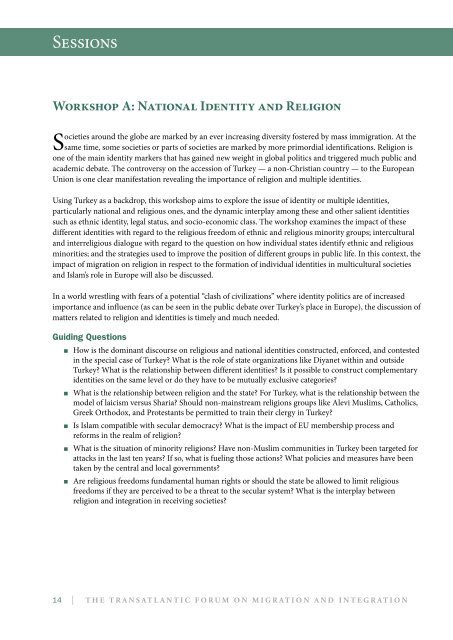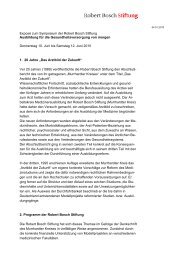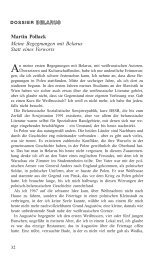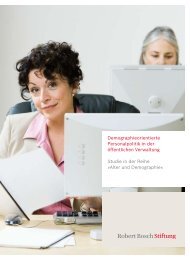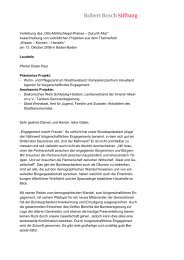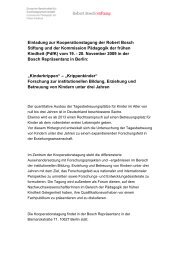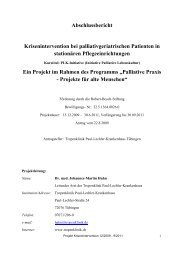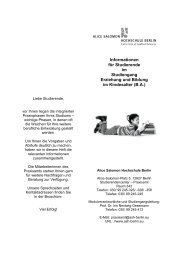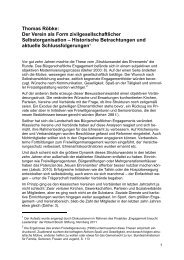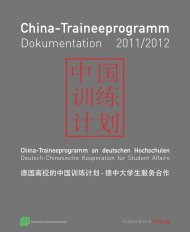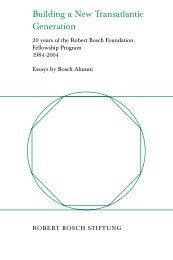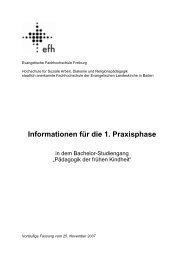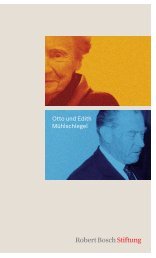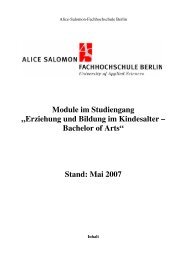Download TFMI 2010 Program (.pdf) - Robert Bosch Stiftung
Download TFMI 2010 Program (.pdf) - Robert Bosch Stiftung
Download TFMI 2010 Program (.pdf) - Robert Bosch Stiftung
- No tags were found...
Create successful ePaper yourself
Turn your PDF publications into a flip-book with our unique Google optimized e-Paper software.
SessionsWorkshop A: National Identity and ReligionSocieties around the globe are marked by an ever increasing diversity fostered by mass immigration. At thesame time, some societies or parts of societies are marked by more primordial identifications. Religion isone of the main identity markers that has gained new weight in global politics and triggered much public andacademic debate. The controversy on the accession of Turkey — a non-Christian country — to the EuropeanUnion is one clear manifestation revealing the importance of religion and multiple identities.Using Turkey as a backdrop, this workshop aims to explore the issue of identity or multiple identities,particularly national and religious ones, and the dynamic interplay among these and other salient identitiessuch as ethnic identity, legal status, and socio-economic class. The workshop examines the impact of thesedifferent identities with regard to the religious freedom of ethnic and religious minority groups; interculturaland interreligious dialogue with regard to the question on how individual states identify ethnic and religiousminorities; and the strategies used to improve the position of different groups in public life. In this context, theimpact of migration on religion in respect to the formation of individual identities in multicultural societiesand Islam’s role in Europe will also be discussed.In a world wrestling with fears of a potential “clash of civilizations” where identity politics are of increasedimportance and influence (as can be seen in the public debate over Turkey’s place in Europe), the discussion ofmatters related to religion and identities is timely and much needed.Guiding Questions■ How is the dominant discourse on religious and national identities constructed, enforced, and contestedin the special case of Turkey? What is the role of state organizations like Diyanet within and outsideTurkey? What is the relationship between different identities? Is it possible to construct complementaryidentities on the same level or do they have to be mutually exclusive categories?■ What is the relationship between religion and the state? For Turkey, what is the relationship between themodel of laicism versus Sharia? Should non-mainstream religions groups like Alevi Muslims, Catholics,Greek Orthodox, and Protestants be permitted to train their clergy in Turkey?■ Is Islam compatible with secular democracy? What is the impact of EU membership process andreforms in the realm of religion?■ What is the situation of minority religions? Have non-Muslim communities in Turkey been targeted forattacks in the last ten years? If so, what is fueling those actions? What policies and measures have beentaken by the central and local governments?■ Are religious freedoms fundamental human rights or should the state be allowed to limit religiousfreedoms if they are perceived to be a threat to the secular system? What is the interplay betweenreligion and integration in receiving societies?14 | T h e T R a n s a t l a n t i c f o r u m o n M i g r a t i o n a n d I n t e g r a t i o n


